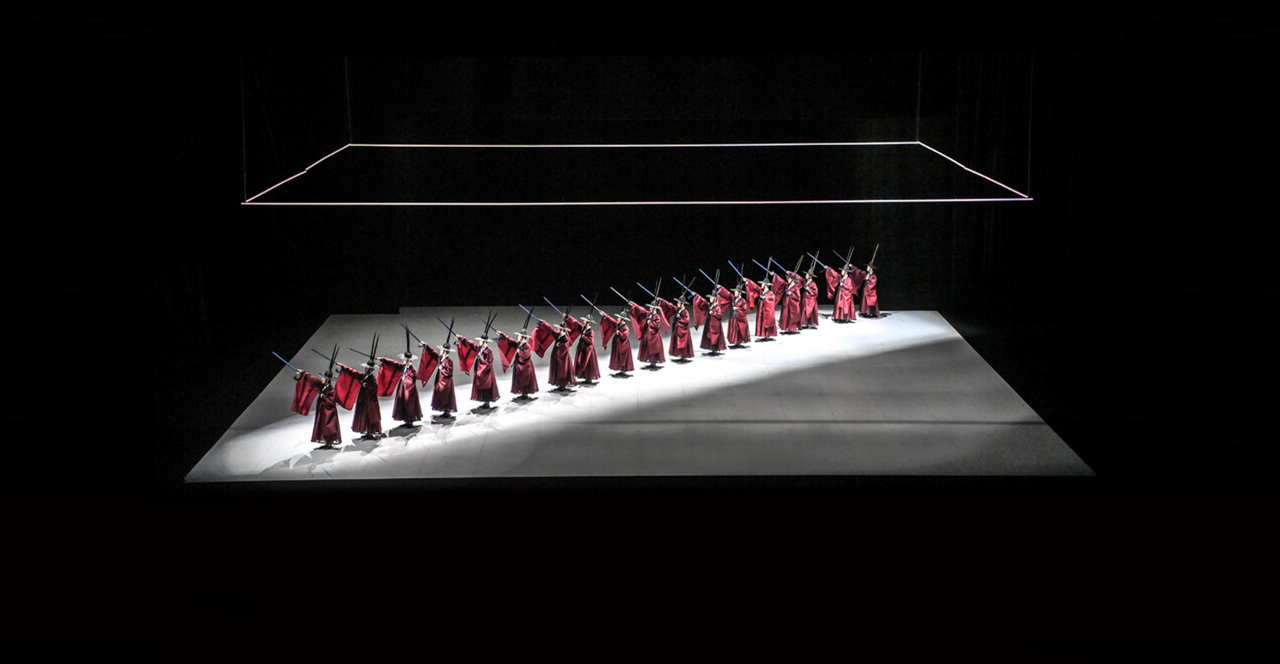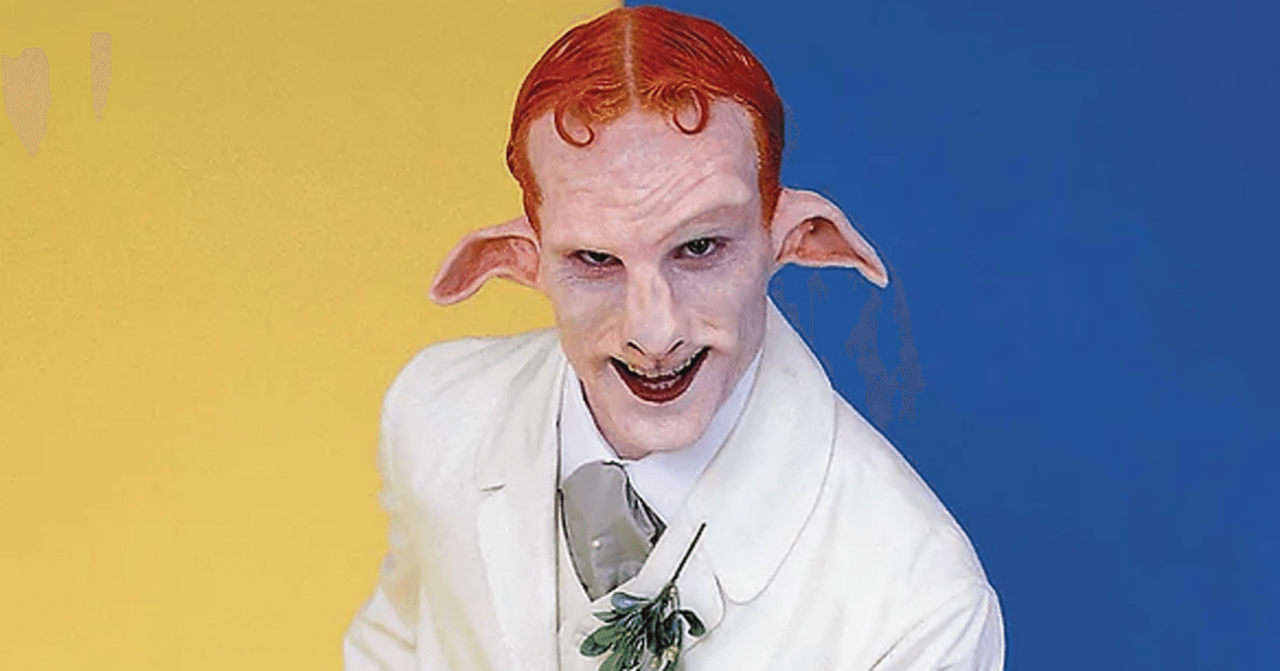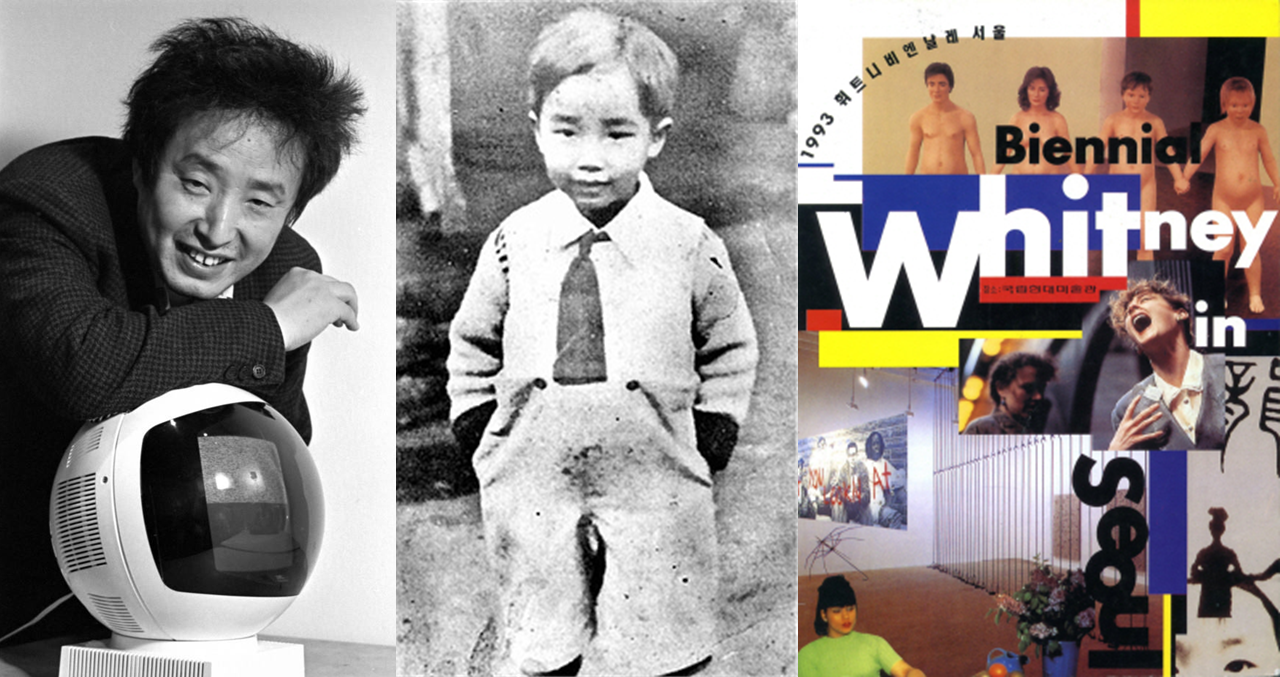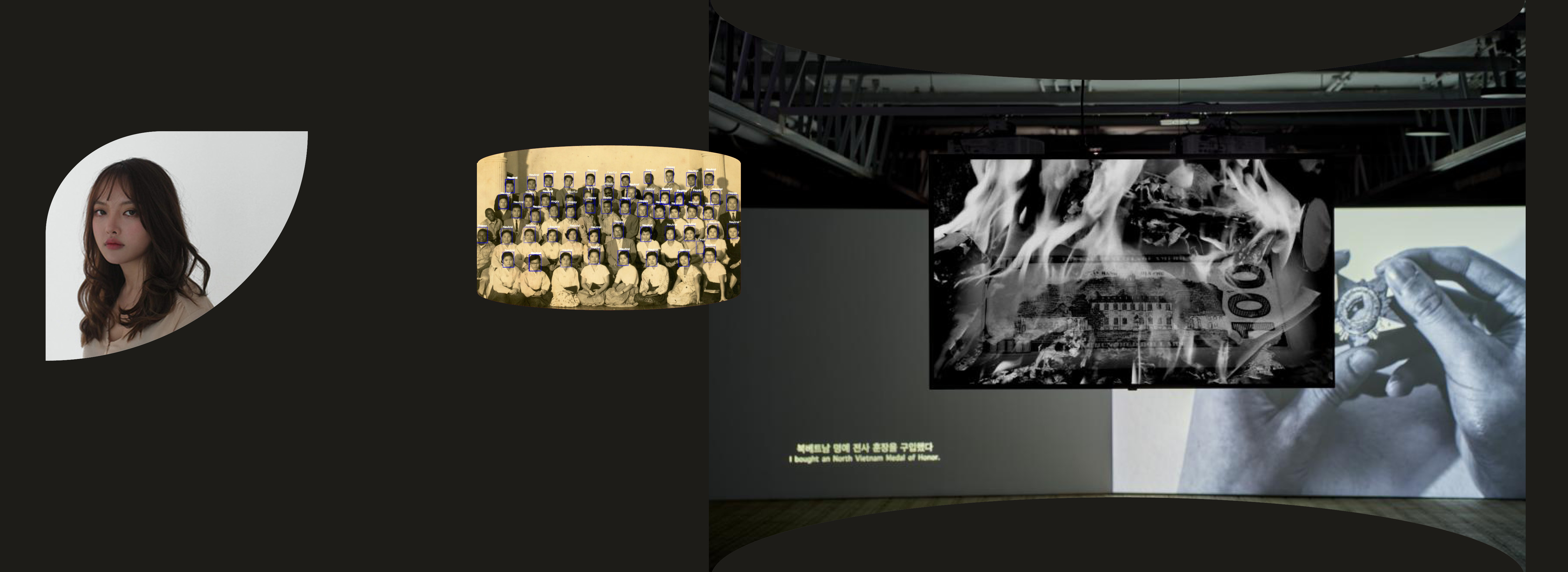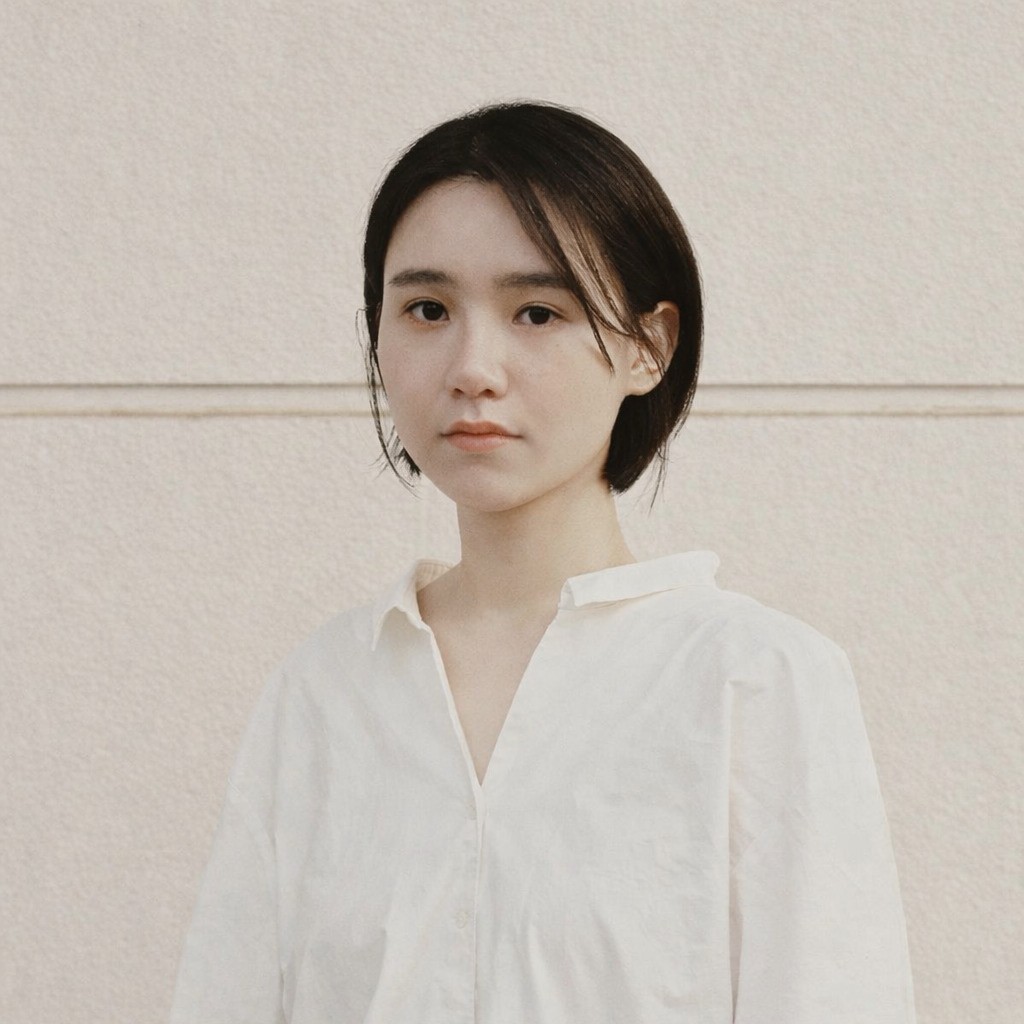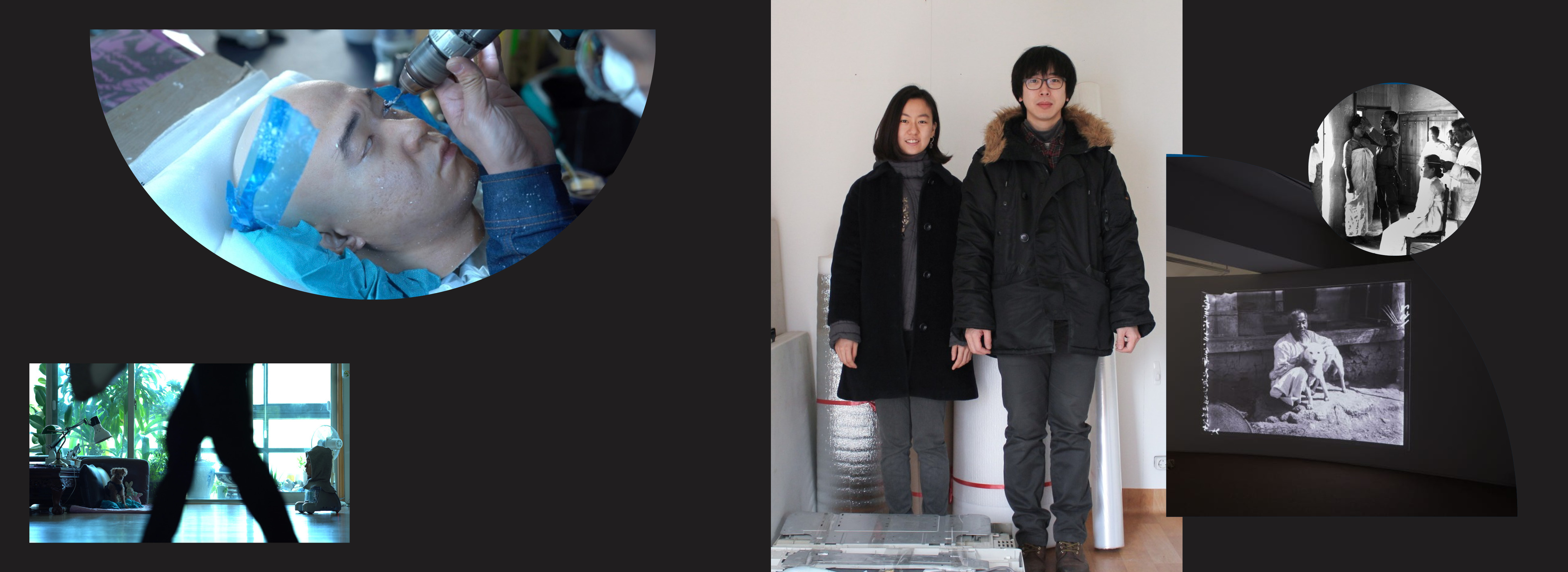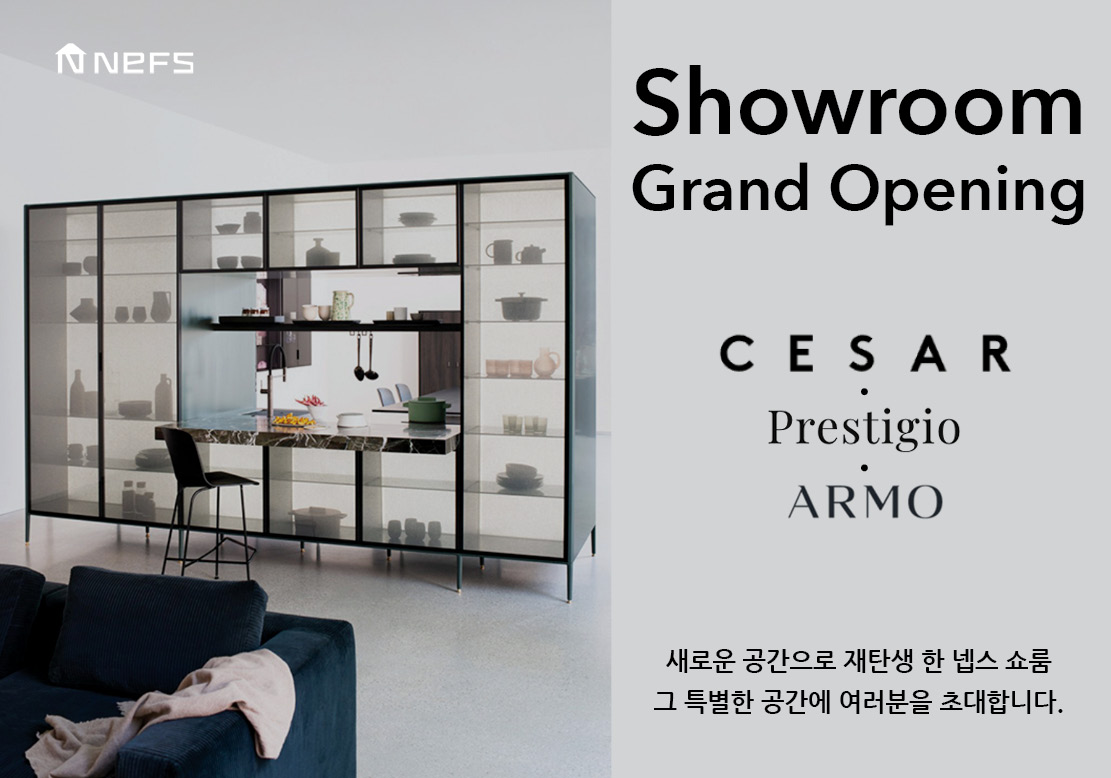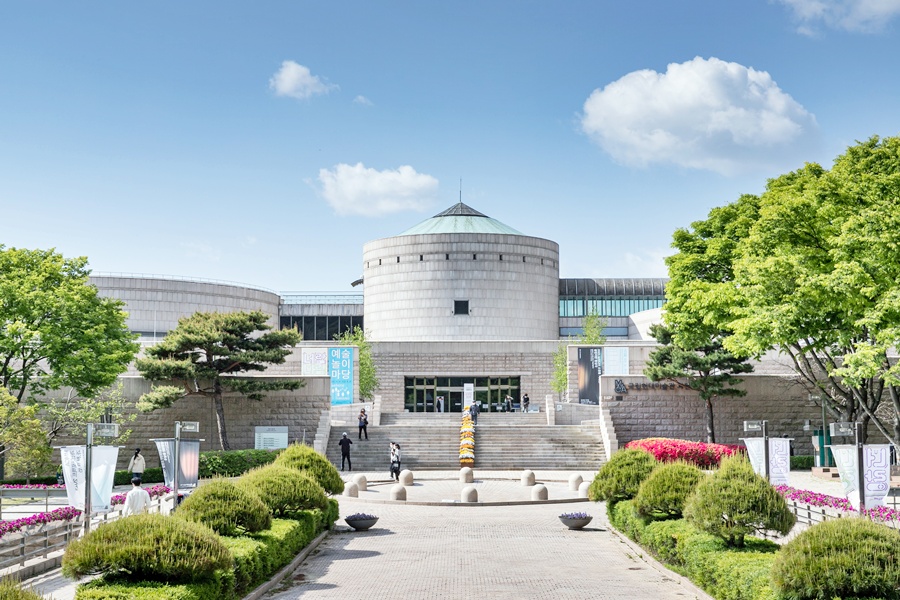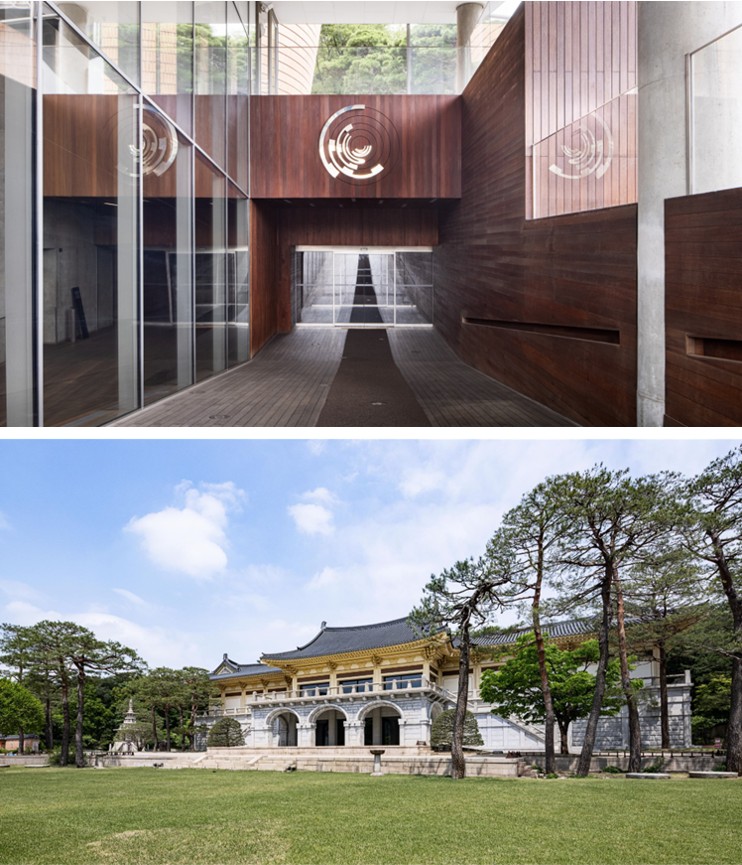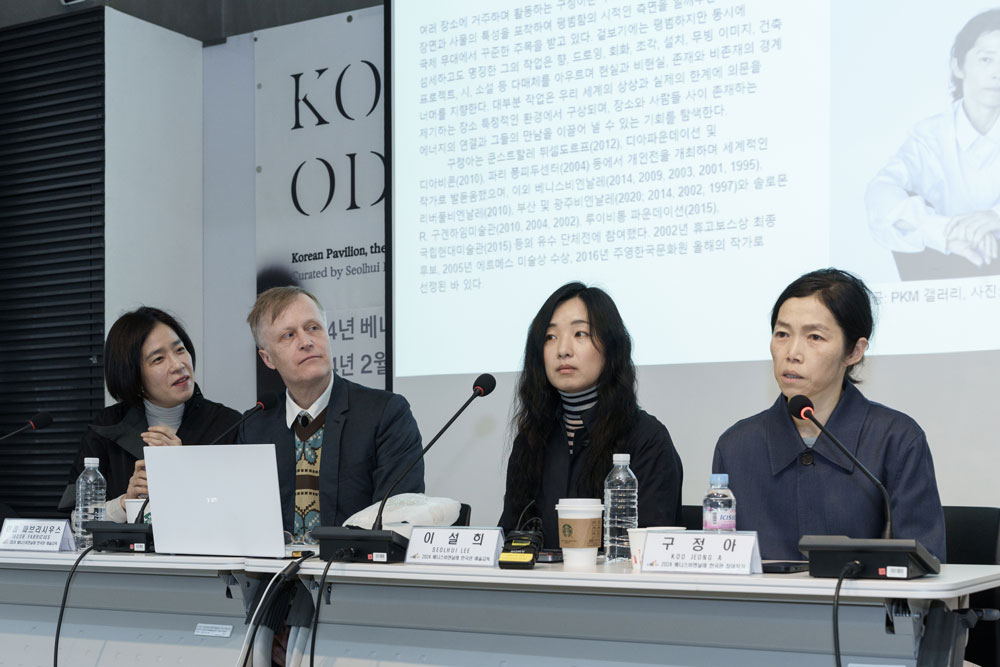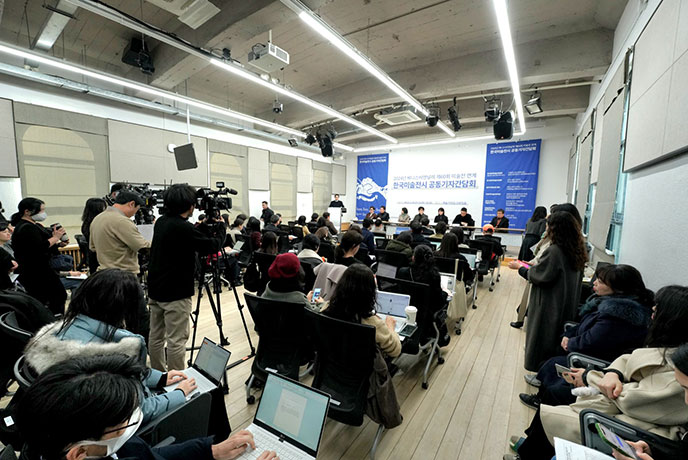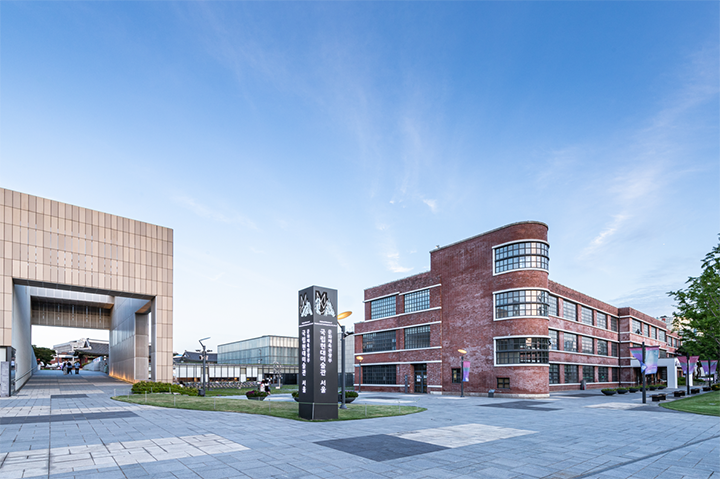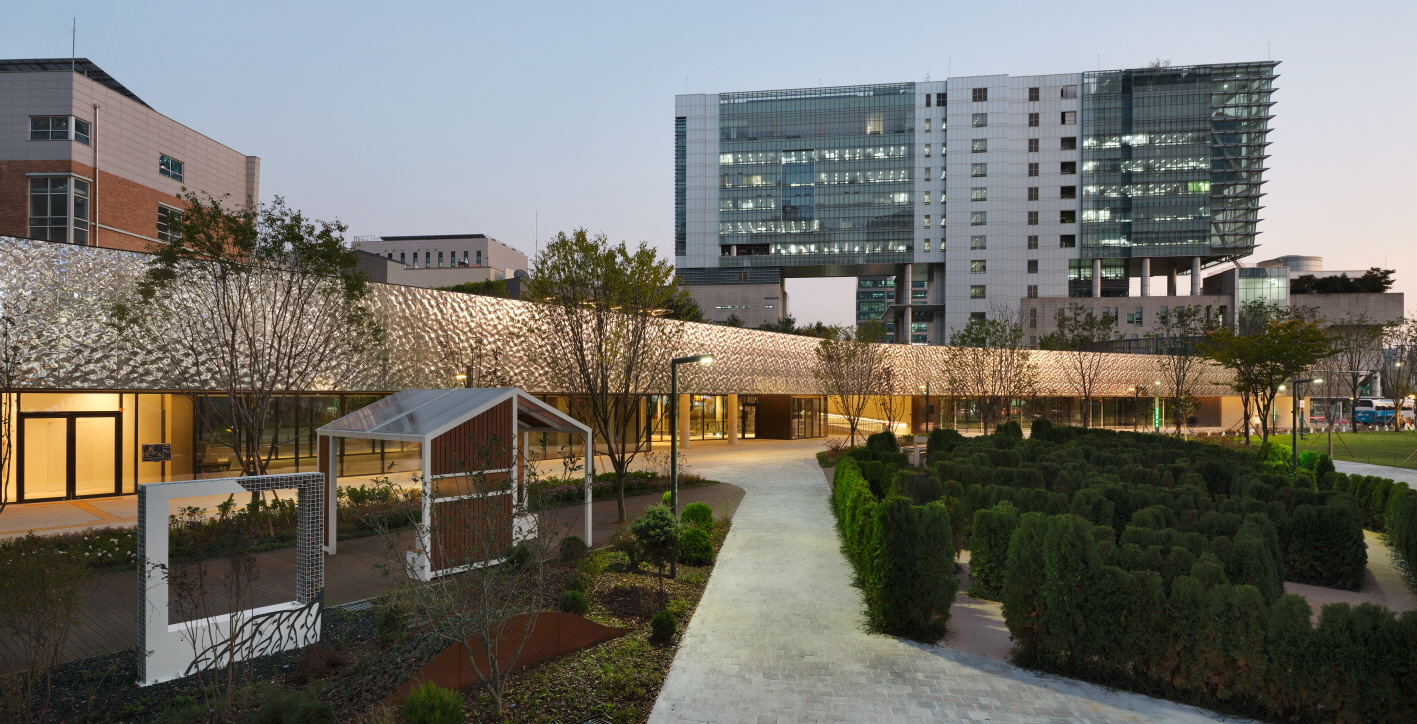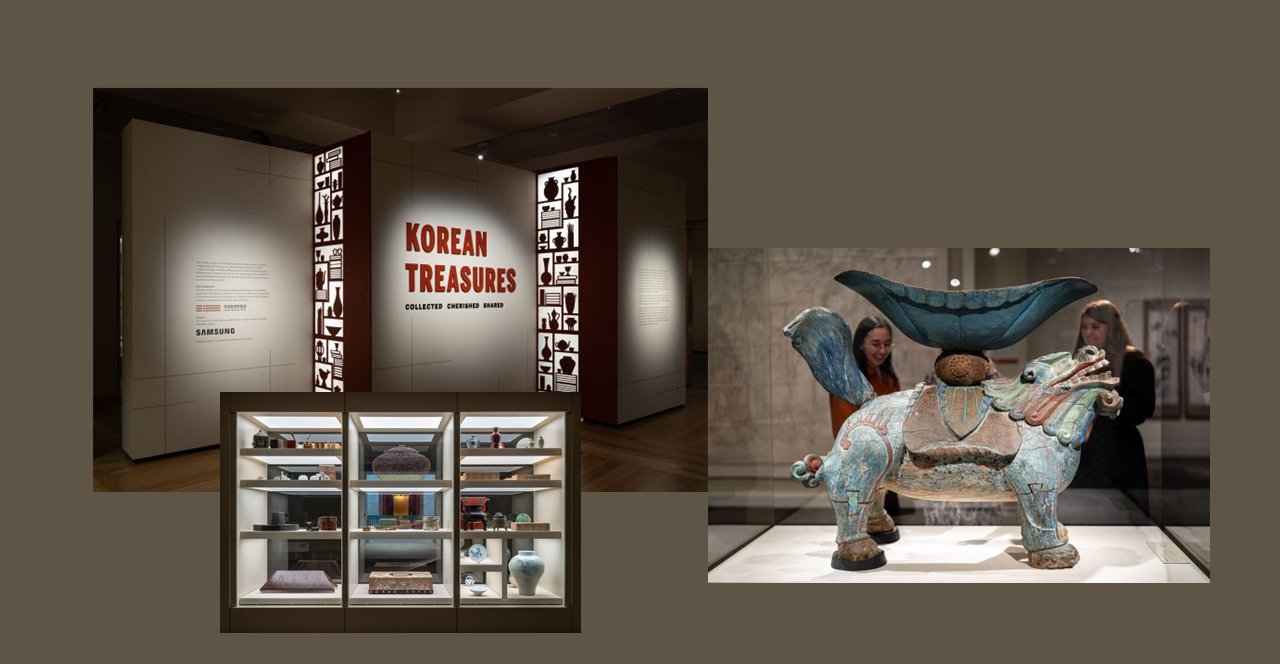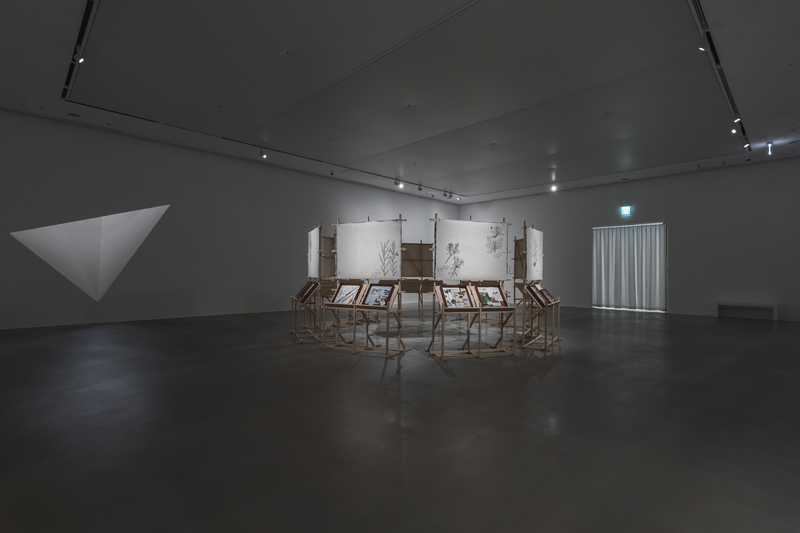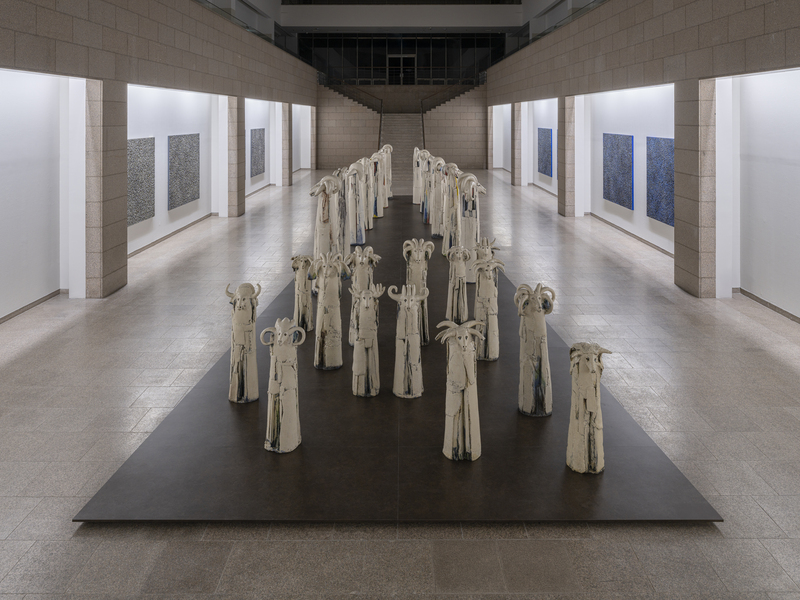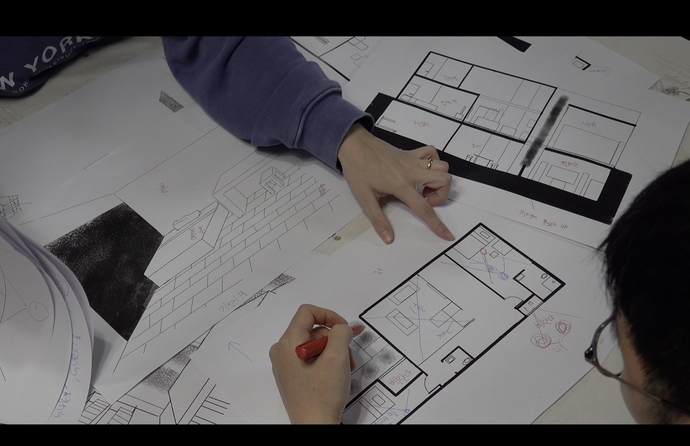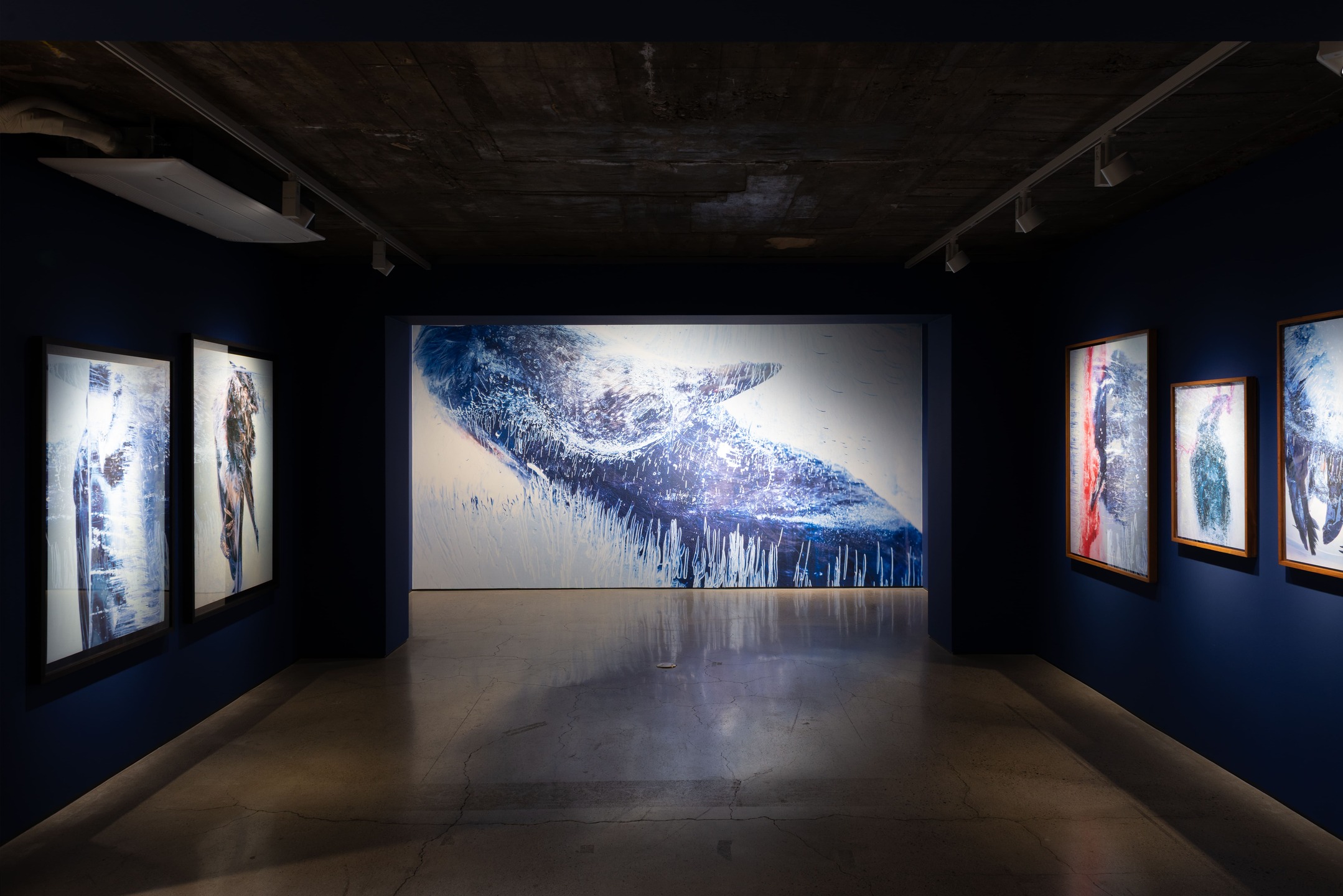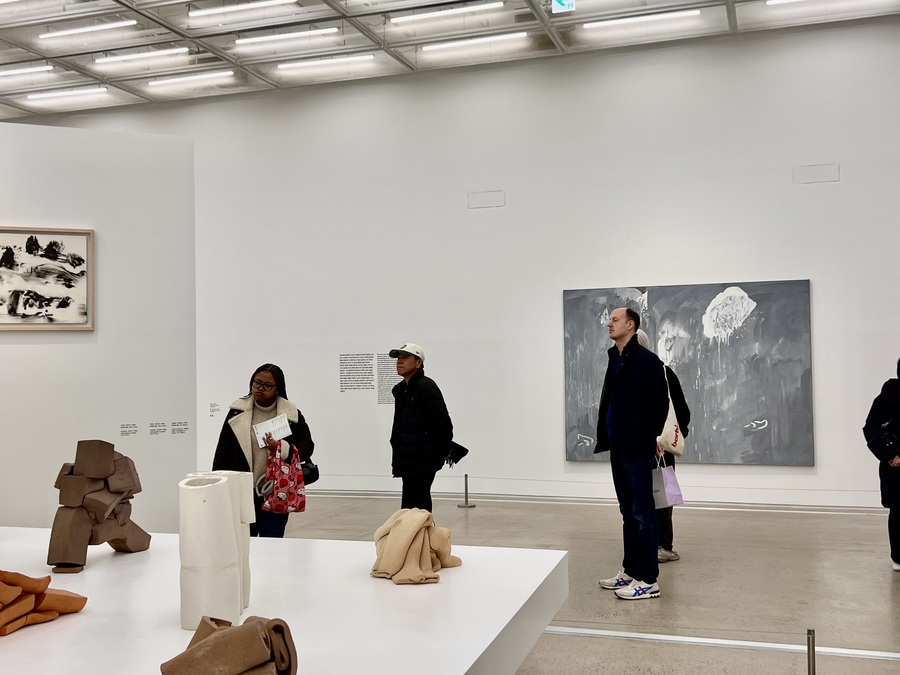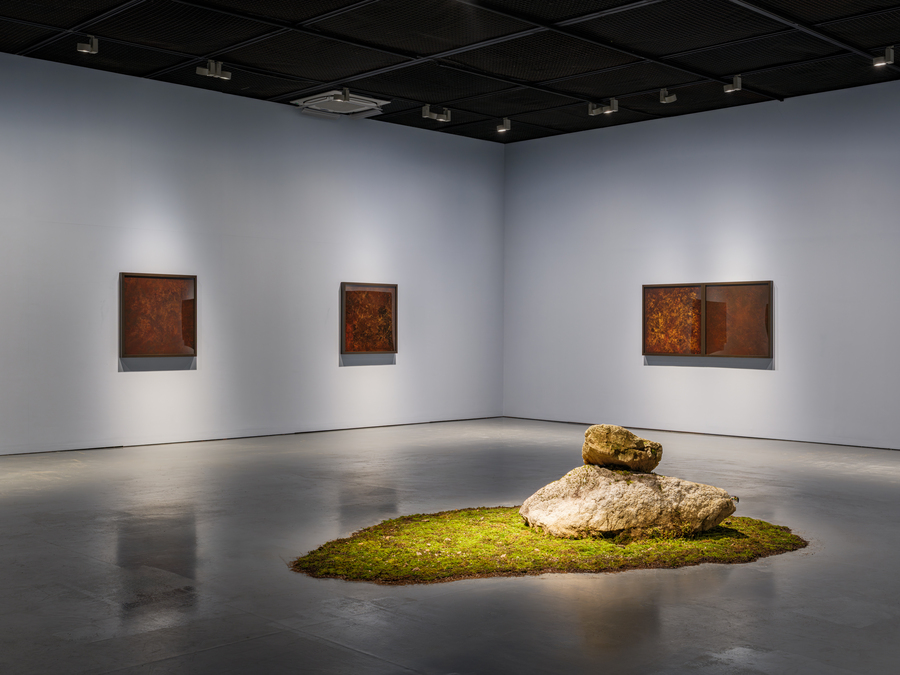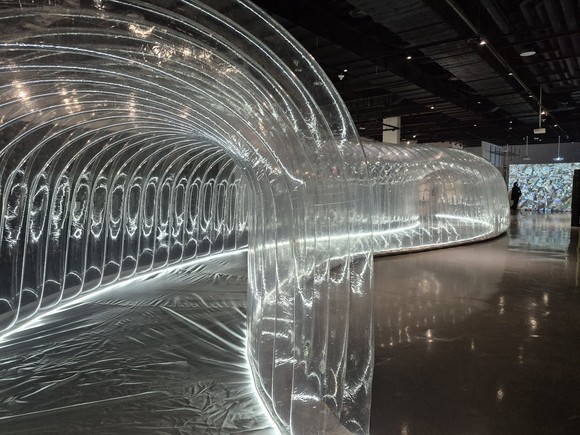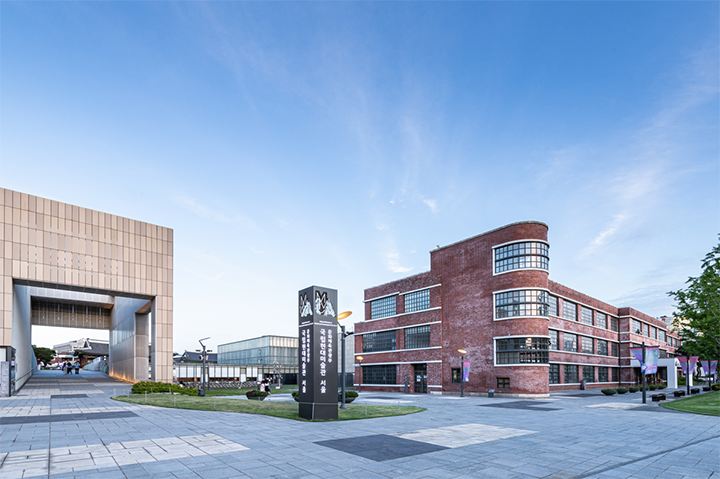
MMCA Seoul ©Park Jung Hoon
국립현대미술관(MMCA, 관장 김성희)은 지난 1월 9일 언론공개회에서 미술관 2024-26 중기 운영방향 및 주요사업과 2024년 전시 계획을 발표했다.
국립현대미술관은 국내 유일 국립미술관으로서의 위상과 사회적 공적 역할을 강화한다. 무엇보다 미술관의 기초를 튼실하게 구축하는 것을 우선적인 과제로 삼는다. 즉 전시, 수집, 교육 등 미술관의 기본사업들을 보다 견고하게 구축하고 그 토대 위에 다양한 사업들을 장기적 안목으로 운용해 나갈 계획이다. 이를 위해 충실한 전시기획으로 한국 근현대미술의 위상을 재정립하고 소장품의 체계적인 연구에 기반한 수준 높은 소장품 구축과 이를 해석하고 전달하는 다양한 교육 프로그램의 운영을 우선할 것이다. 미술관의 3대 기능을 튼실하게 갖추고 이를 통해 국내·외 교류 연구의 강화, 지역적·문화적 수요에 답하는 미술문화 확산을 이룰 것이라 밝혔다.
2024-2026년 3개년 중기계획으로 다음과 같이 6가지 핵심 사업을 전개한다. 우선 한국 근현대 미술사에 대한 체계적 연구와 담론 활성화를 위한 ▲‘연구 기반 한국 근현대미술 Re-프로젝트’, 국제적인 영향력 확장을 위한 ▲‘국제미술 작품 수집 대폭 강화’, 유래 없는 한국미술 부흥기를 맞아 한국미술 글로벌 성장을 위한 ▲‘MMCA 리서치 펠로우십’을 추진하고, 인공지능(AI) 시대 과학과 예술의 접목 및 지속가능한 미래형 미술관 도약을 위한 ▲‘지능형 미술관 시스템’▲‘무장애 미술관, 모두의 미술관’▲‘에콜로지 플랫폼’을 실천한다.
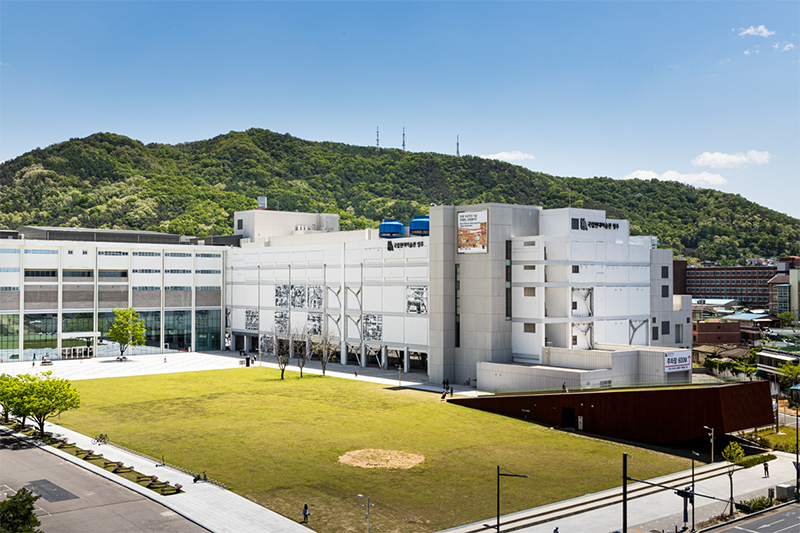
MMCA Cheongju ©Park Jung Hoon
I. 연구 기반 한국 근현대미술 Re-프로젝트 추진
2024년 국립현대미술관은 한국 근현대 미술사에 대한 체계적 연구와 담론 활성화를 위한 ‘한국 근현대미술 Re-프로젝트’(가제)를 추진한다. 미술관 학예직들의 자발적·수평적 연구로 운영되는 ‘연구분과’를 활성화하고, 한국미술을 대표하는 중견 및 대가 심층 연구, 한국 근현대미술의 미술사적 궤적을 거시적, 미시적 시각으로 추적하는 한국미술사 심층 연구의 두 축을 중심으로 연구를 진행한다. 미술사에 기반한 기획전과 개인전 등이 서울, 과천, 덕수궁, 청주 각 관별 특성에 맞추어 균형감 있게 전개된다. 각 전시들은 지속적으로 축적된 연구 및 교류에 기반을 둔 학술 프로그램까지 확장되어 그 깊이를 더할 예정이다.
II. 국제미술 작품 수집 대폭 강화
국립현대미술관은 미술사적 가치가 높은 국내·외 우수한 작품을 발굴·수집하여 현재 소장품 수가 11,500여 점에 이른다. 그동안 한국미술사 정립을 위한 작품 수집이 중점적으로 이루어져 현재 소장품의 90%이상이 국내 작가 중심으로 수집되어 있는 바, 올해부터는 중장기 수집계획으로 국제미술 작품 수집을 대폭 강화하여 세계 미술계와 호흡하는 미술관으로서의 역량을 강화할 것이다. 후원회와 협력하여 국제미술 수집을 위한 후원을 적극 유도하고, 연간 수집예산에서도 국제미술 작품의 비중을 단계적으로 높일 계획이다.
III. MMCA 리서치 펠로우십
국립현대미술관은 한국미술 전시뿐만 아니라 담론의 세계적 확산을 위해 국내외 연구자 및 작가의 국제교류 사업을 확대하고, 국제학술 공공프로그램을 다각화할 것이다. 특히 한국미술 연구 강화를 위해 국제미술 연구자 교류에 기반 한 ‘MMCA 리서치 펠로우십(MMCA Research Fellowship)’을 추진한다. 국립현대미술관 소장품과 아카이브, 인적 자원과 활발하게 연동될 이번 프로젝트는 올해 연구자 선정을 위한 사전준비를 마치고, 2025년부터 본격적으로 연구활동을 전개한다. 이를 바탕으로 향후 한국미술의 국제적 확산을 위한 논문 및 단행본 출판, 세미나 개최 등 연계 공공프로그램이 추진될 예정이다. 본 프로젝트의 성과는 한국미술연구 누리집 ‘MMCA 리서치랩(MMCA Research Lab)’등 국립현대미술관의 다양한 기능에 활용될 뿐만 아니라 국내외 연구자 및 차세대 연구자들의 활발한 네트워크에 기여할 것이다.
IV. 지능형 미술관 시스템 구축
국립현대미술관은 인공지능(AI) 시대에 발맞춘 선도적인 미래형 미술관 운영 기반을 마련할 것이다. 다양한 전문기관과의 협업 및 기술자문으로 올해는 전시실 관람객 밀집도 개선과 작품 안전을 위한 ‘전시실 통합관리시스템’을 연내 도입하고, 인공지능 기술을 활용해 미술재료의 손상 유형을 학습하고 작품손상시기를 예측하는 ‘스마트 미술품 보존시스템’을 구축하여 예방보존 체계 전환을 도모할 예정이다. 또한 작품의 수장고 자동 반출입 및 수장공간 최적화를 목표로 ‘디지털트윈 기반 수장고 통합운영관리시스템’을 2026년까지 도입할 계획이다.
V. 무장애 미술관, 모두의 미술관 실행
국립현대미술관은 ‘베리어프리(Barrier Free) 키오스크’를 연내 도입, 점자 입·출력장치, 수어동작 인식기술, 높이조절 기능 등을 탑재하여 장애인·노약자 등 디지털 취약층의 전시 관람환경 개선을 도모한다. 시각장애인 및 이동약자를 위한 모바일 앱 전용 ‘맞춤형 미술관 길찾기 서비스’를 신설해 현재 위치에서 전시실 및 편의시설 안내, 작품음성해설까지 중단 없는 전시안내 서비스를 지원할 계획이다. 또한, 장애유형별 특화 작품감상 프로그램을 신설하여 연중 사전예약제로 운영하고, 장애인의 전시감상을 돕기 위한 자료(화면정보해설, 수어, 촉각자료 등)를 대폭 확대하는 한편 장애인 문화접근성 개선 관련 세미나를 하반기에 개최할 예정이다. 올해 하반기에는 국제심포지엄 <미술관은 무엇을 하는가: 미술관·공공·가치>를 열고 국내외 석학·연구자들과 함께 ‘미술관의 공공성’을 주제로 미술관의 가치와 역할을 한층 더 제고할 것이다.
VI. 에콜로지 플랫폼 실천
국립현대미술관은 지속가능한 미술관문화 조성을 위해 지난해부터 종이 발권을 최소화하는 ‘스마트검표시스템·QR관람권·QR리플렛’을 도입하고, 전시 조성에 있어 3R(Reduce, Recycle, Reuse) 방향에 따라 전시 조성물의 재사용 및 유관기관 양도 등 탄소 저감을 적극적으로 실천해왔다. 나아가 미술관 전시운영, 시설관리 등에서 발생하는 탄소배출량을 산정하는 내부 ‘탄소관리플랫폼’시스템을 2025년까지 구축 완료하여 데이터에 기반한 과학적인 감축 목표를 설정하고 지속적인 관리 및 탄소 저감을 실천한다. 한편, ‘MMCA 런 디토(Run Ditto)’ 프로젝트를 통해 관람객과 함께 건강한 친환경 미술관 만들기 캠페인을 진행한다. 미술관 걸어오기를 독려하며 런 포인트만큼 나무심기에 기부하는 캠페인을 올해 상·하반기 2회 진행한다. 지속가능한 미술관문화를 만드는 미술관의 실천은 온·오프라인의 다양한 방법으로 지역의 미술관들과도 적극적으로 공유할 것이다.

“Korea Artist Prize 2023” Installation view at MMCA Seoul ©MMCA
In 2024, MMCA will first focus on expanding Korean art to the rest of the world through active interchange efforts, including international Asia-related special exhibitions and joint exhibitions organized with overseas institutions. At MMCA, the international special exhibition “Connecting Bodies: Asian Women Artists” will focus on art created by Asian women since the 1960s from a transnational and comparative cultural standpoint; adopting a contemporary perspective, it examines the multilayered manifestations of feminist art, a subject which has been receiving new attention from the global art world in recent years. At MMCA Deoksugung, “Modern and Contemporary painting of Korea and China” will be presented as the joint curation effort of MMCA and the National Art Museum of China. In addition, the exhibition “Only the Young: Experimental Art in Korea, 1960s–1970s”, which was successfully staged at the Solomon R. Guggenheim Museum in New York, will be brought to the Hammer Museum in Los Angeles in February, while “The Modern and Contemporary Korean Writing”, which drew a strong response at MMCA Deoksugung, will be visiting the Taoyuan Museum of Fine Arts in Taiwan.
Second, the department strives to explore and highlight the diversity and expansiveness of contemporary Korean art. It continuously focuses on bringing attention to artists and works in often underrepresented fields such as landscaping, ceramics, and embroidery. “Lee Kang So” showcases the works of representative Korean artist Lee Kang So, by highlighting how his unique artistic language and constant experimentation attempt to unravel the diverse endeavors and communications in contemporary Korean art history. “Jung Young Sun, Landscape Architect” focuses on the lifelong dedication for land forming by Jung Young Sun as Korea’s first female licensed landscape architect. “Korean Embroidery in Modern Times” adopts a diachronic perspective on Korean embroidery, exploring a range of areas including modernization, tradition, pure art and crafts, artisans, labor, lifestyles, and industry. “Ceramics in Life and Arts: Modern Ceramics in Korea since 1950’s” looks at modern Korean ceramic artists since the 1950s, including Chung Kyu, Yu Geunhyeong, Kim Sukwhan, and Shin Sangho.
Third, the museum will be presenting themed exhibitions on timely topics that connect with contemporary social contexts, including posthuman concepts, AI, and residential culture. “What an Artificial World” explores AI’s influences on society and art, while “What Things Dream About” offers an image of a future co-created by human and non-human beings in a posthuman era. “Performing Home: The Art of Living” will adopt a critical perspective on contemporary Korean society and its increasingly severe residential issues. Using architecture’s “home” as a medium, the exhibition recalls values associated with life in the post-2000 era, through contemporary architecture and residential culture of the time.
Fourth, MMCA will contribute to expanding the horizons of art history by researching and spotlighting its collection under a more three-dimensional approach. “What’s the Time in Your World?” will use the camera lens to consider the hidden sides to everyday landscapes. “Variable Collection” will offer a multifaceted exploration of the characteristics of contemporary art and the life cycles of collection items that are passed on to future generations. “1960s–70’s Figurative Paintings in MMCA Donated Collection” will focus on figurative painting among the artworks recently donated to the museum. “Co-existence” will present examples of international art in the new media genre from the MMCA collection. “On Late Style” will examine style in the later periods of leading figures in Korea’s modern and contemporary art history in order to achieve a fuller understanding of these master artists’ bodies of work. “Technic of the naming” will use the various classifications applied to artwork titles to pose questions about viewing environments and the appreciation and understanding of artwork.
Fifth, MMCA is broadening the experience of contemporary art through diverse programs in areas that include performances, installations, workshops, documentaries, and virtual reality-based film, while actively supporting artists in their creative activities through projects spotlighting emerging and established creators. “Korea Artist Prize 2024” will be the latest edition of one of the Korean art world’s premier award systems, which also serves to share contemporary art discourse. “PROJECT HASHTAG 2024” is designed to discover young creative teams representing the next generation and support them in experimental and challenging collaborations. Other exhibitions that will contribute to an expanded contemporary art experience include “MMCA Film and Video 2024, MMCA Performing Arts, A Very Old Hybrid”, and “History, Newly Written–VR Films from Canada and South Korea”.



